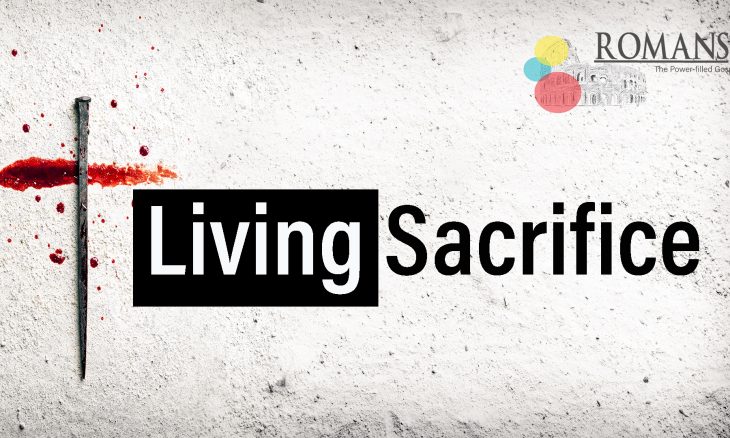On January 13, 1982, Air Florida Flight 90 crashed into the icy Potomac River in Washington, D.C. Among the survivors was Arland D. Williams Jr.—but he never made it out. Each time the rescue line was lowered, he passed it to someone else. Five people were pulled to safety because of his sacrifice. When the helicopter returned for him, he had drowned. Williams’ choice embodied the essence of sacrificial living—giving up your life so that others might live.
Romans 12 marks a similar turning point in Paul’s letter. After eleven chapters unpacking the depth of our sin, the riches of God’s grace, and the unshakable promises of His love, Paul turns to us with a simple but radical appeal: “I urge you, in view of God’s mercy, to offer your bodies as living sacrifices.”
I. The Motivation – The Mercy of God
Paul’s “therefore” reaches back over all of Romans 1–11.
- Romans 3:24 — Justified freely by grace.
- Romans 5:8 — Christ died for us while we were sinners.
- Romans 8:1 — No condemnation in Christ.
- Romans 8:39 — Nothing can separate us from His love.
Obedience is not fueled by guilt—it flows from gratitude. Titus 3:5 reminds us, “He saved us… according to His mercy.” Before you try to “do more for God,” pause and remember what He has already done for you.
Illustration: Just as an engine runs on fuel, so our obedience runs on mercy. Without it, we stall or try to coast on our own strength.
II. The Nature of the Sacrifice – Your Whole Self
Unlike the dead sacrifices of the Old Testament, Paul calls us to present ourselves as living sacrifices.
- Living — Daily surrender (Luke 9:23).
- Holy — Set apart for God’s purposes (1 Peter 1:15–16).
- Acceptable — God desires not empty rituals but justice, mercy, and humility (Micah 6:8).
God isn’t after your Sunday hour but your everyday life—your habits, your relationships, your choices.
Question: Is my life positioned on the altar—or am I crawling off?
III. The Logic of Sacrifice – True Worship
Paul calls this sacrifice our “reasonable” (logikos) act of worship. In light of the cross, surrender isn’t extreme—it’s the only logical response.
Worship is not confined to a sanctuary or a song—it’s the offering of your whole life. 2 Corinthians 5:15 puts it this way: “He died for all, that those who live should no longer live for themselves but for Him.”
Illustration: Like a soldier pledging allegiance, every action flows from the commitment made. Worship isn’t a weekly song; it’s a daily surrender.
IV. The Mind of the Sacrifice – Be Transformed
Paul contrasts two ways of life: being conformed to the world or being transformed by God.
- Don’t conform. The world molds us into self-first, success-driven, truth-as-relative thinking (1 John 2:15–16).
- Be transformed. Like a caterpillar becoming a butterfly, the Spirit changes us from the inside out (2 Cor. 3:18).
- Renew your mind. Saturate your thoughts with God’s truth (Phil. 4:8, Col. 3:2).
Illustration: What you feed your mind is like your media diet—it shapes you more than you realize. Replace lies with Scripture to renew your thinking.
V. The Result of Sacrifice – Discernment and Delight
Transformation produces clarity and joy in knowing God’s will.
- Discernment: His Word guides like a lamp (Ps. 119:105).
- Delight: His will is “good, acceptable, and perfect” (Rom. 12:2).
Like a trained musician whose fingers instinctively find the right notes, a renewed mind instinctively responds with godliness.
Conclusion
Romans 8 assured us we are secure in God’s love. Romans 12 calls us to live like it—on the altar, surrendered to His mercy.
Jim Elliot said it best: “He is no fool who gives what he cannot keep to gain what he cannot lose.”
Where is God calling you to climb onto the altar today?















